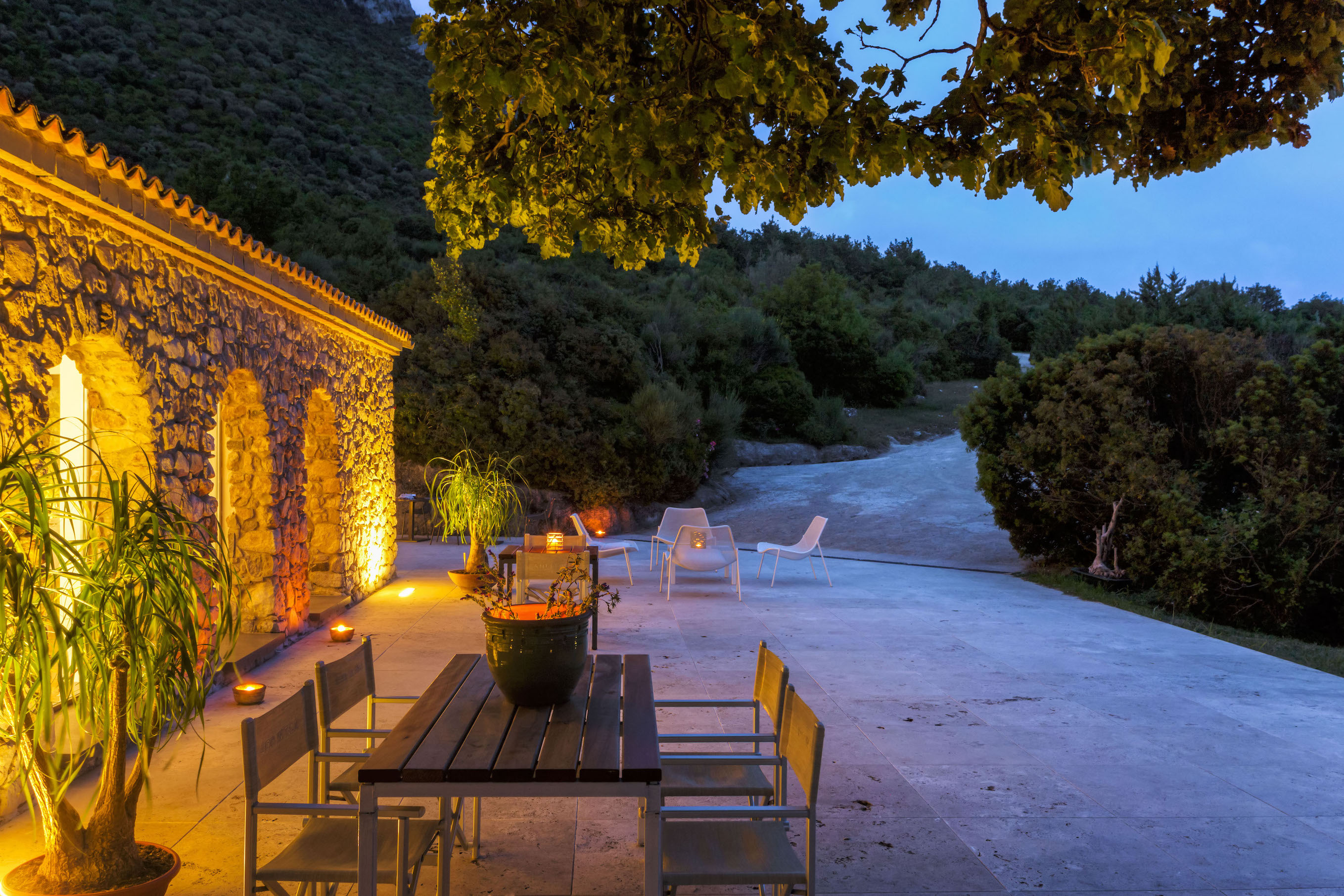Il Cannito — Old and new fuse with heart and soul at this charming 4-room hotel in the hills above Paestum.
Accommodation:
Four extremely refined bedrooms are elegantly furnished with designer pieces and paintings by local artists.
All the rooms are equipped with high-tech amenities such as floor heating, LCD monitor, and Internet and video-conference access. The bathrooms are mini wellness areas where guests can relax in soothing hydro-massage and hydro-sonic bathtubs and dedicate themselves to body care and comfort.
The terrace and the private or communal sun decks offer enchanting views, keeping guests in constant contact with the natural environment.
About the building and the people:
The driving force that motivates every work day coincides with the resolve to spread an innovative culture of tourism aimed at enhancing the natural resources instead of exploiting them unconditionally.
The story of il Cannito began 25 years ago thanks to the foresight of the head of the Gorga family, Luigi, who fell in love with the Capaccio area and who transmitted to his family his desire to create an exclusive residential complex, fully respecting the natural environment, in a charming territory full of history and ancient traditions. Today, the Gorga family offers its guests a warm and friendly hospitality, typical of a privileged maison d’hotes.
The two enchanting residences are surrounded by thick Mediterranean maquis composed of oaks, Holm-oaks, elm trees, myrtle, and juniper thickets: a natural mix of colors and perfumes that enhance the uncontaminated beauty of areas dearly loved by the ancient Greeks and Romans. The two structures are so perfectly integrated with the environment that at first sight they appear as being developed in concert with the mighty oaks surrounding them.
Location:
The Paestum plain is at once austere and fascinating. Here, nature offers poetic, enchanting panoramas. Archaeological finds prove that Paestum and its surrounding areas were inhabited in pre- historic eras. The city of Paestum was founded at around the start of the 7th century BC. When Greek colonists conquered the area they named the city Poseidonia, in honor of Poseidon, god of the sea.
Its location near the river Sele in the gulf then called Posidoniate – now Gulf of Salerno – permitted the city to expand and prosper. The city owes its current name and historical heritage to the Romans who after defeated the Greeks in 273 BC founded a Latin colony and named it Paestum.
Paestum remained loyal to Rome, even trough the most difficult periods of its history. The Romans rewarded this loyalty by granting the city the privilege to mint its own bronze coinage, up to time of the emperors Augustus and Tiberius. At Paestum the Romans built magnificent constructions such as Thermae, the portico of the Forum, the Temple of the Peace and the Amphitheater.
The city remained in continuous occupation throughout the Roman imperial period but started to go in decline between the 4th and the 7th centuries, probably due to changes in local drainage patterns, leading to malarial conditions. It was abandoned during the Middle Ages and its ruins only came to notice again in the 18th century, during the reign of the Bourbon king Charles III. After the rediscovery the monument were given the names they still bear: the Basilica, Temple of Nettune, Temple of Ceres.
FAQS
Price range per night: From 250 to 280 €
Number of rooms: 4
Capacity per room: 2 - 4
Self-catering: No
Restaurant: Yes
Family-friendly: No special facilities
Customized guide for clients: Organized tours on speed boat and architecture and gastronomic tours are available.
Pets allowed: No
Free Wifi: Yes
Multilingual staff: Yes. English and Italian
Payment methods accepted: Cash, Mastercard, Visa, Diners
